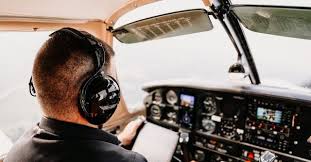Why the First Few Months of Flight School Matter Most
The beginning of flight training plays a critical role in shaping a student’s overall experience, success, and readiness for a career in aviation. While every phase of pilot education is important, the first few months carry a unique weight. This is the time when new students develop core habits, gain essential foundational knowledge, and start adapting to the responsibilities that come with aviation.
For many aspiring pilots, these early stages are the first real step toward a professional goal. Whether someone enters flight school with prior exposure to aviation or not, the early months set the pace—and often determine how quickly and confidently they progress.
Getting Used to a Whole New Environment
Flight school is unlike traditional education. It requires both academic learning and real-world decision-making—sometimes in high-pressure situations. For most students, the first few weeks involve adjusting to this hybrid learning style. Ground school introduces technical concepts like aerodynamics, weather patterns, and federal regulations, while flight training begins to develop muscle memory and spatial awareness in the air.
At the same time, students must learn how to communicate clearly with instructors and air traffic controllers, follow strict safety procedures, and manage their time well. It’s a lot to absorb in a short amount of time. But mastering these basic elements early on helps prevent future delays in training—and builds a strong foundation for more advanced topics.
Building the Right Habits from Day One
In aviation, habits matter. The routines a student establishes in their first few months—like pre-flight checks, logbook organization, study planning, and checklist use—often stay with them throughout their entire career. Small things, such as always arriving prepared or reviewing flight briefings thoroughly, can make a noticeable difference in performance.
This is also the time when students begin developing situational awareness and risk management thinking. These aren’t just skills—they’re mindsets. Instructors pay close attention to how students approach mistakes, whether they ask questions, and how seriously they take feedback. Flight schools aren’t just training people to fly—they’re shaping professionals who need to operate under strict standards.
If you’re researching how commercial pilot training works, or considering where to start, it’s crucial to learn more about programs that focus on real-world flight readiness—not just passing exams. A flight school that prioritizes strong instruction from the beginning can make a major difference in your experience.
Where Confidence Begins to Take Shape
Confidence is a key part of becoming a pilot, but it doesn’t appear overnight. In the early stages, students are introduced to unfamiliar aircraft, new radio procedures, and complex airspace rules. It’s natural to feel overwhelmed. But with the right instruction and consistent practice, that early confusion turns into clarity—and eventually, confidence.
Most students remember their first solo flight as a major turning point. But before that happens, they need to show that they understand not only how to fly but also how to make safe, independent decisions. The first few months are when instructors evaluate whether a student is ready for this next step.
Laying the Groundwork for Future Ratings
Flight school doesn’t end with a private pilot license. Many students aim for instrument ratings, commercial licenses, or even airline transport certification. The learning only gets more complex from there. A weak foundation can slow down progress later on and lead to additional time and cost.
By taking the early months seriously, students put themselves in a better position to meet the milestones ahead. This includes understanding basic aerodynamics, mastering flight maneuvers, and learning how to handle emergency procedures. Students who are solid in these areas tend to perform better on checkrides and handle setbacks with more resilience.
Avoiding Burnout and Staying on Track
Another reason the early stage matters is that it sets the emotional rhythm of training. Flight school can be intense. Between flying lessons, studying, and scheduling exams, it’s easy to fall behind or feel discouraged. Students who start with clear routines, strong support, and good time management strategies are less likely to feel overwhelmed as the program moves forward.
This is also when many students realize whether flying is truly the right path for them. Some may find it more demanding than expected. Others might discover that they love the structure, challenge, and technical skill involved. Either way, the first few months offer valuable insight before making larger career commitments.
The First Step Toward a Professional Mindset
Ultimately, what happens in the first few months of flight school matters because it represents more than just learning to fly—it’s the beginning of learning to think and act like a pilot. Everything from communication and preparation to safety and decision-making is introduced at this stage, and students who engage fully with the process tend to carry that professionalism with them into every flight that follows.
Flight training isn’t just about passing tests. It’s about building the habits, confidence, and mindset needed to succeed in aviation for the long term. And that starts on day one.


